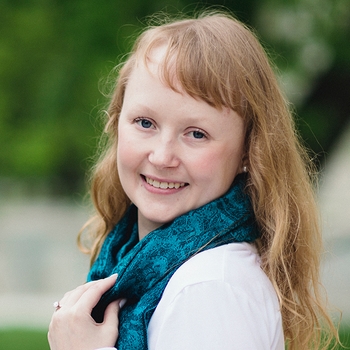
Alexandra Piotrowski-Daspit Receives Grant from Emily’s Entourage to Explore CF Treatments
Grant to accelerate research in cystic fibrosis

Grant to accelerate research in cystic fibrosis
Congratulations to Alexandra Piotrowski-Daspit, PhD, Assistant Professor, Biomedical Engineering and Internal Medicine, Pulmonary and Critical Care Medicine Division, on receiving a grant for $220,000 in funding from Emily’s Entourage (EE), an innovative 501(c)3 that accelerates research for new treatments and a cure for the final 10% of people with cystic fibrosis (CF).
The grant supports research focused on non-viral nucleic acid delivery to provide more effective treatment options for people with nonsense mutations of CF. The project, titled, “Multi-organ targeted non-viral nucleic acid delivery for CF nonsense mutations,” aims to explore the development of polymeric vehicles to improve the delivery of nucleic acid-based therapeutics to target tissues and cells in the body, primarily the lung and the gastrointestinal system.
“My lab works on polymer biomaterials for nucleic acid delivery for gene editing and gene therapy,” Dr. Piotrowski-Daspit explained. “The main goal of the project is to develop delivery vehicles that can reach all the tissues in the body that are affected by the disease. Although CF is often thought of as a lung disease, it also affects other organs, particularly the gastrointestinal tract. This project is focused on identifying systemic intravenous delivery systems using our biodegradable polymers to ideally reach both the airways and the GI tract to treat all of the areas where CF manifests.”
CF is a progressive genetic disorder caused by mutations in the cystic fibrosis transmembrane conductance regulator (CFTR) gene. There are over 1,700 CF-causing mutations, which are classified according to resulting functional alterations in CFTR. Nonsense mutations such as W1282X and G542X result in premature stop codons, thereby producing truncated CFTR protein and loss of function. Nucleic acid-based therapies–including gene editing, gene therapy and mRNA therapy–offer the potential to replace or correct dysfunctional CFTR. However, delivery of these therapies to target organs remains a primary barrier to clinical translation.
“We are incredibly grateful to Emily’s Entourage for this generous grant, which will enable us to advance our research on polymeric vehicles for in vivo delivery of nucleic acid-based therapeutics,” said Dr. Piotrowski-Daspit. “The long-term goal of our work is to develop a treatment applicable to all people with CF, providing them with the opportunity to lead full, productive lives.”
Dr. Piotrowski-Daspit added: “Attending academic conferences that involve not only basic scientists, but also clinicians, the care-support staff, such as nurses, as well as people with CF and their families is incredibly motivating. I’m excited to strengthen my connection to the CF community by becoming part of Emily’s Entourage!”